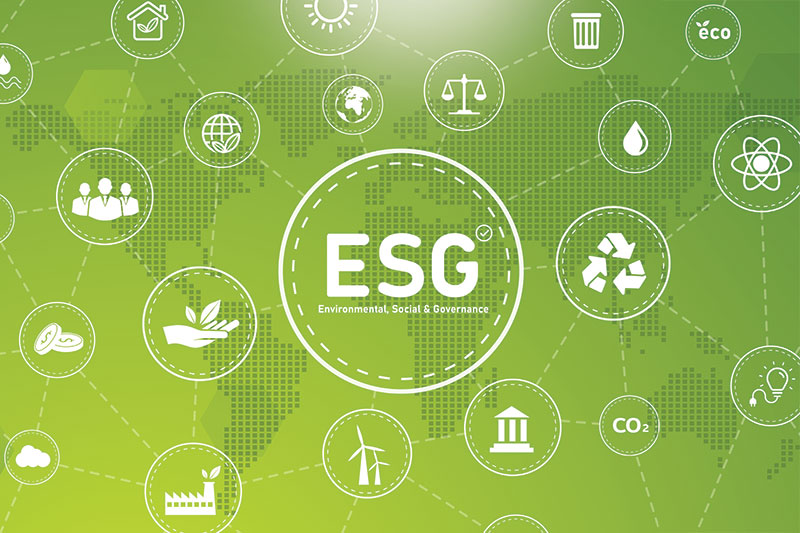
By Elouise Epstein ·
July 6, 2022
One of the lasting legacies of the post-COVID era will be how ESG jumped to the top of the corporate strategic objectives. In fact, it’s such a popular board-level objective, visible in nearly every annual report, that the discussion is less about why to do it and more how to do it.
The previous laissez-faire approach to ESG is no longer tenable amid massive social upheaval. As individual brands seek to sell to a more socially conscious demographic (Millennials and younger), companies must put greater effort into how they produce products, reduce their environmental impact and create meaningful social change. In other words, to reach their targeted demographics, corporations must step in to fill a gap created as governments abdicate their social responsibility. However, this becomes a huge problem for procurement because many of our n-Tier suppliers are located at or near sites of unstable political upheavals. Russia’s recent invasion of Ukraine made this all too clear.
In an alarming number of cases, a national government is simply a failed state (such as, recently, Myanmar). Nongovernmental organizations such as the United Nations, World Bank and the World Health Organization are under severe political attack. In response, corporations are stepping in to fill the void. In fact, corporations have become so involved that there’s now pushback from activists against corporations becoming too involved in social issues. For example, in advance of Pride each year there’s usually a public questioning of whether Pride Month is selling out to corporations.1 In 2018, Vox carried an article entitled “How LGBTQ Pride Month became a branded holiday,” in which the author challenges whether corporate support of Pride is merely part of a branding campaign. The article notes that, for example, Adidas has a “Pride pack” of merchandise readily available for sale. Simultaneously, Adidas was a major sponsor of the 2018 World Cup held in Russia, a country that is continually hostile and punishing to queer people. If money spent on Adidas merchandise ends up supporting the Russian government and its persecution of the queer community, then Adidas is not serving its queer customers well.

By Elouise Epstein ·
July 6, 2022
One of the lasting legacies of the post-COVID era will be how ESG jumped to the top of the corporate strategic objectives. In fact, it’s such a popular board-level objective, visible in nearly every annual report, that the discussion is less about why to do it and more how to do it.
The previous laissez-faire approach to ESG is no longer tenable amid massive social upheaval. As individual brands seek to sell to a more socially conscious demographic (Millennials and younger), companies must put greater effort into how they produce products, reduce their environmental impact and create meaningful social change. In other words, to reach their targeted demographics, corporations must step in to fill a gap created as governments abdicate their social responsibility. However, this becomes a huge problem for procurement because many of our n-Tier suppliers are located at or near sites of unstable political upheavals. Russia’s recent invasion of Ukraine made this all too clear.
In an alarming number of cases, a national government is simply a failed state (such as, recently, Myanmar). Nongovernmental organizations such as the United Nations, World Bank and the World Health Organization are under severe political attack. In response, corporations are stepping in to fill the void. In fact, corporations have become so involved that there’s now pushback from activists against corporations becoming too involved in social issues. For example, in advance of Pride each year there’s usually a public questioning of whether Pride Month is selling out to corporations.1 In 2018, Vox carried an article entitled “How LGBTQ Pride Month became a branded holiday,” in which the author challenges whether corporate support of Pride is merely part of a branding campaign. The article notes that, for example, Adidas has a “Pride pack” of merchandise readily available for sale. Simultaneously, Adidas was a major sponsor of the 2018 World Cup held in Russia, a country that is continually hostile and punishing to queer people. If money spent on Adidas merchandise ends up supporting the Russian government and its persecution of the queer community, then Adidas is not serving its queer customers well.

July 6, 2022

Subscribe to Supply Chain Management Review Magazine!
Subscribe today. Don’t Miss Out!
Get in-depth coverage from industry experts with proven techniques for cutting supply chain costs and case studies in supply chain best practices.
Start Your Subscription Today!

